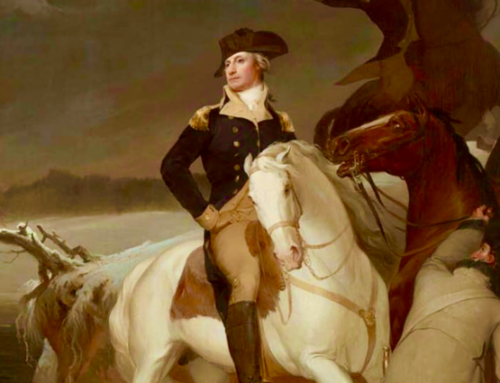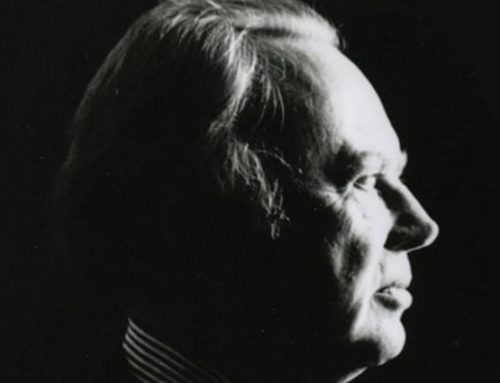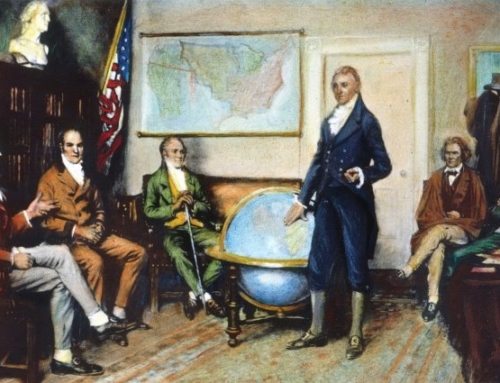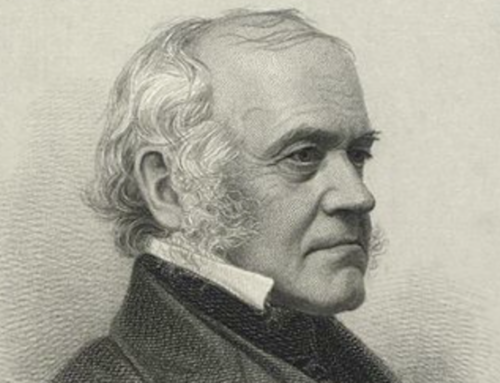By the beginning of the Mexican war, even famed newspaper editor John L. O’Sullivan began to doubt his own expansionist infatuations. What would America do, for example, if she tried to incorporate not just Mexico but actual, honest-to-God Mexicans into the republic?
 Standing with his father as they watched the Battle of Bunker Hill in 1775, eight-year-old John Quincy Adams must have wondered in amazement at the bloody and brutal nobility of it all. And, what must he have thought as he traveled from one European seat of government to another as his father attempted to convince the French and the Dutch in the European courts to support the republican cause of the Americans? America seemed a utopian dream at best to Europeans, an abomination at worst. Though we might take republics as a matter of course, most politicos and governors of the late 18th century would have thought of them as no better than how most of us might think of a well-intentioned Seattle hipster anarchist today. Yet, no matter the opposition, the insults, and the slights, John Adams performed his republican duty, and his son witnessed it all.
Standing with his father as they watched the Battle of Bunker Hill in 1775, eight-year-old John Quincy Adams must have wondered in amazement at the bloody and brutal nobility of it all. And, what must he have thought as he traveled from one European seat of government to another as his father attempted to convince the French and the Dutch in the European courts to support the republican cause of the Americans? America seemed a utopian dream at best to Europeans, an abomination at worst. Though we might take republics as a matter of course, most politicos and governors of the late 18th century would have thought of them as no better than how most of us might think of a well-intentioned Seattle hipster anarchist today. Yet, no matter the opposition, the insults, and the slights, John Adams performed his republican duty, and his son witnessed it all.
As with so many of the “greats” of his generation—Henry Clay, John C. Calhoun, Daniel Webster, and Andrew Jackson—John Quincy Adams asked with aching longing and bewilderment, exactly how he could possibly live up to the standards of the revolutionary generation? If measured, surely any of his generation would be found wanting. For us in the second decade of the 21st century, the George Washingtons and the John Adamses and the Thomas Jeffersons live in bronze statues and marble busts. On the right, the left, or any where above, below, between, and next to, we Americans look to them for approval, but their approval is an abstraction, a distance immeasurable by the norms of the spirit if not by the notations on a calendar. For the era of John Quincy Adams, however, these founders were not just demi-gods in a mythic past, but the living flesh of reality. Again, to ask it bluntly, how could a Quincy Adams, a Clay, a Calhoun, a Webster, or a Jackson ever live up to the standards of a demi-god, a founder of the American republic? Whatever mistakes this second generation of American republicans might have made—and they were legion—we of the early 21st century would not be out of order to offer some charitable sympathy toward them, individually and collectively. In politics, art, culture, and religion, they attempted to navigate their inherited world with a republicanism that had not been attempted on any serious scale for nearly 2,000 years.
Unfortunately, this second generation came to believe that war and expansion best expressed their filial piety to their republican fathers. One need look no further than the 1812 Congressional report, advocating that the American people go to war against the British for their depredations on sea and on the western frontier:
Your committee, believing that the free-born sons of America are worthy to enjoy the liberty which their fathers purchased at the price of so much blood and treasure, and seeing in the measures adopted by Great Britain, a course commenced and persisted in, which must lead to a loss of national character and independence, feel no hesitation in advising resistance by force; in which the Americans of the present day will prove to the enemy and to the world, that we have not only inherited that liberty which our fathers gave us, but also the will and power to maintain it. Relying on the patriotism of the nation, and confidently trusting that the Lord of Hosts will go with us to battle in a righteous cause, and crown our efforts with success, your committee recommend an immediate appeal to arms.
Though the British government had adopted resolutions of apology to the Americans for any past and present aggressions—perceived and real—on June 16, 1812, sixteen days earlier, President Madison had already asked for a resolution of war against them and Congress complied with the president’s wishes on June 18, a full six weeks before the British apology arrived on American soil. By then, full-scale war had already begun and would continue for nearly three years, ending only with Andrew Jackson’s smashing victory against Sir Edward Pakenham’s misguided assault on New Orleans. Bolstered by their defeat of Napoleon, Pakenham’s massive, battle-hardened English naval and marine forces assaulted New Orleans in the second week of 1815. Outnumbered but entrenched, Jackson’s ragtag forces did not just defeat the British, they slaughtered them.
Emboldened by this lopsided victory at the mouth of the Mississippi River, Americans proclaimed the utterly bizarre and disjointed War of 1812 nothing less than a second War of Independence. Even Madison, one of the most reviled presidents of any age, became a national hero after Jackson’s victory. Whatever the spin on the war, Americans of that age, by and large, came to believe in the power of war as a profound and meaningful expression of republicanism. Though many of the successes of the war came from militias (from those on the western frontier, those fighting in the defense of Baltimore, and, especially, from Jackson’s rather private and sometimes uncontrollable army), the new nationalist narrative suddenly dismissed this mainstay of American republicanism as too decentralized, too archaic, and too unreliable. The army and navy not only grew in size and stature, but the federal government began to build a series of coastal defenses (one of which was Fort Sumter, the trigger for the American Civil War). War became more professional than it had been in the history of the Americans at that point.
As Professor of History Emeritus Walter Nugent of the University of Notre Dame has argued in his excellent 2008 study, Habits of Empire, our territorial expansion “instilled in the American people the habit of empire-building.” Whether we justified such western movement as our destiny or not, Dr. Nugent claims, we have always loved empire, even we have not loved the term itself. “Still, how could a republic and an empire possibly reside together in harmony? ‘Republic’ and ‘empire’ have not always fit well together. Today there is a good chance that ‘empire’ might eclipse ‘republic.’ Old habits can become unthinking practices,” Dr. Nugent laments. “Thus we have always been an imperial nation, and remain so, but the shape of the American empire has shifted over time. Its present form is different from either our own past ones or historic ones like Rome or Britain. It is still developing.” While Dr. Nugent arguably gives too early of a date for the rise of American empire—I would place the roots in the aftermath of the War of 1812, he in the 1760s—he is sadly correct in his argument. Americans, whatever republican language they use, do indeed, by and large, believe they have the right to control much if not all of the world.
One cannot read Dr. Nugent’s words and not think of the words of Alexis de Toqueville, whose work Dr. Nugent knows quite well. De Tocqueville expressed his gut-wrenching reaction to seeing the Choctaw Indians being forcibly removed from their southern homelands:
I found myself on the left bank of the Mississippi, at a place named Memphis by the Europeans. While I was in this place, a numerous troop of Choctaws (the French of Louisiana call them Chactas) came; these savages left their country and tried to pass to the right bank of the Mississippi where they flattered themselves about finding a refuge that the American government had promised them. It was then the heart of winter, and the cold gripped that year with unaccustomed intensity; snow had hardened on the ground, and the river swept along enormous chunks of ice. The Indians led their families with them; they dragged along behind them the wounded, the sick, the newborn children, the elderly about to die. They had neither tents nor wagons, but only a few provisions and weapons. I saw them embark to cross the great river, and this solemn spectacle will never leave my memory. You heard among this assembled crowd neither sobs nor complaints; they kept quiet. Their misfortunes were old and seemed to them without remedy. All the Indians had already entered the vessel that was to carry them; their dogs still remained on the bank; when these animals saw finally that their masters were going away forever, they let out dreadful howls, and throwing themselves at the same time into the icy waters of the Mississippi, they swam after their masters.
Distraught by all that he saw, de Tocqueville concluded with this damn irony, “With a marvelous ease, calmly, legally, philanthropically, without shedding blood, without violating a single one of the great principles of morality,” the Americans disposed of their Indian problem. “You cannot destroy men while better respecting the laws of humanity.” Lest any reader believe that de Tocqueville approved of these actions, feast upon the note he wrote in his manuscript: “This world is, it must be admitted, a sad and ridiculous theater.”
Whatever one wants to label it, American expansion has led to the habit of empire, expansion, and war. As Americans, we might very well cover our actions and deeds in fair, liberal, and republican language, but these adornments cannot change the essence of imperialism, by whatever name. The repeated government removal of American Indians is certainly one blatant example of this imperialism in the 19th century, which often failed even to discriminate against those Indian tribes hostile to American interests (such as the Sioux) and those in admiration and alliance (the Nez Perce).
Even the much lauded Monroe Doctrine, while certainly defending the right of South Americans to declare independence from Spain, also allowed the United States to claim the entire western hemisphere as hers and hers alone when it came to shaping its geopolitical present and the future.
As scholars from Marty Martin to Richard Gamble have ably shown, this American expansionism became nothing less than an American civic religion, ably and mischievously mixing with the evangelicalism of the Second Great Awakening. Yet, even Americans would not be satisfied with the movement of peoples from Plymouth Rock to Rodeo Drive. They wanted more and more. And then, some more.
In the late 1830s, John L. O’Sullivan, the editor of the Democratic Party journal, The United States Magazine and Democratic Review, gave poetic voice to what most Americans had already taken for granted. America, he claimed, had been given to the world by God to teach them exactly how to live the good life, through persuasion and force. In his understanding, O’Sullivan saw the land of the United States as the new Church, a physical and political entity to replace the medieval Catholic Church. Dismissing the entire western tradition from Heraclitus to Edmund Burke, he wrote sweepingly, “We have no interest in the scenes of antiquity, only as lessons of avoidance of nearly all their examples.” As Americans, he continued, we care only for “the expansive future” and only “for our history. We are entering on its untrodden space, with the truths of God in our minds, beneficent objects in our hearts, and with a clear conscience unsullied by the past. We are the nation of human progress, and who will, what can, set limits to our onward march? Providence is with us, and no earthly power can.” If true, how could anyone ever argue with such a position? God is on our side. Accept this or die is the radical implication. “We point to the everlasting truth on the first page of our national declaration, and we proclaim to the millions of other lands, that ‘the gates of hell’—the powers of aristocracy and monarchy—’shall not prevail against it.'” How so many deeply Christian evangelical 19th-century Americans could not see O’Sullivan’s ideas as pure heresy is a mystery, in and of itself, but one well beyond the reach of this article. Still, it must be remembered, Jesus spoke these words regarding the Church, not a people or a government. And, He meant Satan as the great adversary, not European aristocrats or monarchy. Yet, it is in the following that O’Sullivan reaches the heights of hyperbolic absurdity:
The far-reaching, the boundless future will be the era of American greatness. In its magnificent domain of space and time, the nation of many nations is destined to manifest to mankind the excellence of divine principles; to establish on earth the noblest temple ever dedicated to the worship of the Most High—the Sacred and the True. Its floor shall be a hemisphere—its roof the firmament of the star-studded heavens, and its congregation an Union of many Republics, comprising hundreds of happy millions, calling, owning no man master, but governed by God’s natural and moral law of equality, the law of brotherhood—of “peace and good will amongst men.”
By 1845, though, even O’Sullivan began to doubt his own expansionist infatuations. What would America do, for example, if she tried to incorporate not just Mexico but actual, honest-to-God Mexicans into the republic? “Beyond a quest the entire Mexican vote would be substantially below our national average both in purity and intelligence,” he worried. Understandably, one might begin to doubt the man’s sincerity about political ideals, realizing that in his racist heart, probably not all men are created equal, deserving of the securing of natural rights by governments so instituted.
Only five years after O’Sullivan had proclaimed the supposed God-ordained glories of Manifest Destiny, the New England man of letters, Ralph Waldo Emerson, proclaimed America “the country of the future,” though he would also soon place his own personal hopes in the messianic pretensions and insanities of John Brown.
Some voices. One a racist, the other an ideologue.
In a thousand ways, Americans from 1839 forward used the language of Manifest Destiny as a justification to take this or that reservation, this or that hacienda, as well as California, Texas, Arizona, Nevada, Kansas, Nebraska, Colorado, the Dakotas, Montana, Wyoming, New Mexico, Oregon, Washington, and Idaho. Innumerable voices spoke the same language, justified the taking of all of Mexico, Cuba, and much of Central America. Americans, it seemed, could righteously justify itself in claiming the whole world if it so desired.
No where, however, was this more clear than in the Americas. The very “law of nature,” Representative Frederick Stanton of Tennessee argued in 1846, “has separated the continents by interposing vast abysses” between them. God, therefore—or some semblance of God—“forbids that nations on one continent shall have rights on another by implication, extension, contiguity, or by any other invisible, intangible, metaphysical principle.”
Presumably, neither Cicero nor Aquinas would recognize Stanton’s employment of the natural law. Then again, neither of the great western thinkers had ever had the grand privilege of visiting Tennessee.
In that same martial year of 1846, Representative Lewis Levin of Pennsylvania argued that any nation that possessed truth not only had the right to claim every inch of soil, here and abroad, to extend the righteousness of that truth, but that such a nation actually possessed the duty to pursue such a course of world conquest.
One might rightly guess that Levin had not studied—or at the very least had forgotten—Plato’s “ring of Gyges.”
A year later, Senator Lewis Cass of Michigan preached to Congress the end of the American experiment. “It is no longer an experiment, but experience,” he assured the Senate, “no longer a promise, but performance.” America, he continued, had not only proven herself, but she “had grown with our growth and strengthened with our strength.”
Though the opposition to such blatant expansion failed, it did, thank the good Lord, exist. New York’s Representative Charles Goodyear rightly saw Manifest Destiny as a disease, attempting to cover a multitude of sins while being “at defiance with all reason.” It would easily and readily turn us into Alexander’s empire or Rome’s decadence, he feared. Another Whig, Thomas Corwin of Ohio, saw Manifest Destiny as merely the newest term of the very same excuse given by any emperor or thief anywhere, the right to claim what is not one’s own. “You say you want room for your people. This has been the plea of every robber chief from Nimrod to the present,” he noted. We as Americans, Corwin lamented, have become nothing less than unreasonable fanatics, “hunting a market for blood, selling the lives” of the young to “be slaughtered and paid for like oxen.” How dare, he asked, any righteous people proclaim such horrific lusts in the name of God? One of the very last of the founding generation, Albert Gallatin, still alive during the Mexican War, saw the republic’s decline as one of the greatest of modern travesties, not just for the American people, but for the very cause of Justice itself. American claims to Manifest Destiny had, like all other perversions in history, taken the nobility of patriotism and corrupted it, making a false idol. In so doing, we had encouraged man to “hate man, to awaken his worst passions.” Even if one could prove the Mexicans as racially inferior to the Anglo-Saxon Americans (which Gallatin rejected), “no one man is born with the right of governing another.”
As American conservatives and libertarians, we obsess over a simple mental game: when did it all go wrong? For the Jaffaites, it was Woodrow Wilson. For the southern traditionalists, it was Abraham Lincoln. For the Kirkians, it was Andrew Jackson. Still others might look back with regret to Thomas Jefferson’s Louisiana Purchase or to the loss of the Articles of Confederation.
From my perspective, the tension between the patriots and the nationalists was a healthy one during the first three presidential administrations. By the end of the War of 1812, however, the patriots had suffered a serious blow. From then until the Mexican War, the trajectory of American politicos and public intellectuals toward nationalism and imperialism reigned supreme, the latter winning in the 20th century as American technology matched American reach. Or, more properly, in the 21st century, overreach.
The Imaginative Conservative applies the principle of appreciation to the discussion of culture and politics—we approach dialogue with magnanimity rather than with mere civility. Will you help us remain a refreshing oasis in the increasingly contentious arena of modern discourse? Please consider donating now.
The featured image is courtesy of Picryl.







Leave A Comment